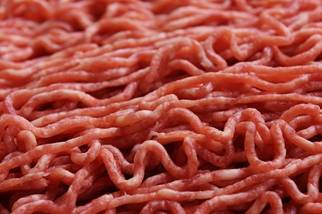Processed Meat Associated with Greater COPD Risk
 Middle-aged women may be at an increased risk of developing chronic obstructive pulmonary disease (COPD) when they have a greater intake of processed meat. In a new international study assessing the 87,000-plus registrant Nurses’ Health Study II data, a team of France- and Boston-based investigators found that processed meat—along with other known risk factors including smoking and obesity—significantly increase middle-aged women’s risk of developing COPD.
Middle-aged women may be at an increased risk of developing chronic obstructive pulmonary disease (COPD) when they have a greater intake of processed meat. In a new international study assessing the 87,000-plus registrant Nurses’ Health Study II data, a team of France- and Boston-based investigators found that processed meat—along with other known risk factors including smoking and obesity—significantly increase middle-aged women’s risk of developing COPD.
Investigators sought to interpret the associated increased risk of COPD with processed meat, as well as the significance of increased risk factors in COPD-susceptible women.
This is especially important because the findings closely follow the classification of processed meat as a carcinogenic by the International Agency for Research on Cancer. Previous research has linked processed meat intake to greater risks of chronic diseases and all-cause mortality, investigators said.
“Regarding lung health, eight studies have reported that frequent processed meat intake was associated with decreased lung function, and greater COPD symptoms, exacerbations, or incidence,” researchers wrote.
In the report, the eight studies were cross-sectional or longitudinal with data collected from among various countries, and generated by men or women with a mean age greater than 65 years old.
According to the researchers, they studied 2,296,894 person-years’ worth of data from the nurses database. They identified 634 incident cases of COPD, while separating the average processed meat intake into intervals of “never/almost never;” less than one serving per week; or greater than one servings per week.
After adjusting for smoking and unhealthy diets, investigators said they found a positive association between processed meat intake of ≥1 serving per week and COPD risk versus never/almost never intake.
When arranged according to smoking or unhealthy diet, only people who smoked most of their lives and women with unhealthy diets had an increased risk of COPD. When adjusted for age, the risk for COPD nearly doubled in middle-aged women with two of the three observed unhealthy lifestyle habits. Among women with all three observed habits, COPD risk was raised nearly seven-fold.
Investigators believe their findings carry major public health implications, as the only currently understood metric for primary COPD prevention is avoidance of exposure to tobacco smoke.
“To our knowledge, only one cross-sectional study has assessed the modifying effects of antioxidant and oxidant intake in the association between processed meat and lung function, but without including the combined effect of unhealthy/healthy diet and smoking,” they said.
The nitrites added to meat products can play a role in an increased inflammatory process.
Investigators said processed meat intake is associated with increased COPD risk, and advised clinicians assess dietary interventions as part of their approach to promoting proper lung health.
Click her to read the full article on HCP Live Network.

